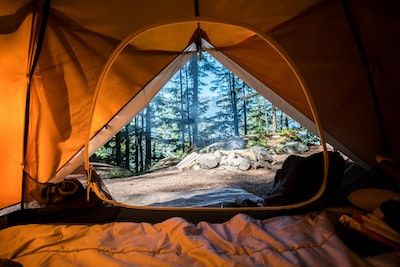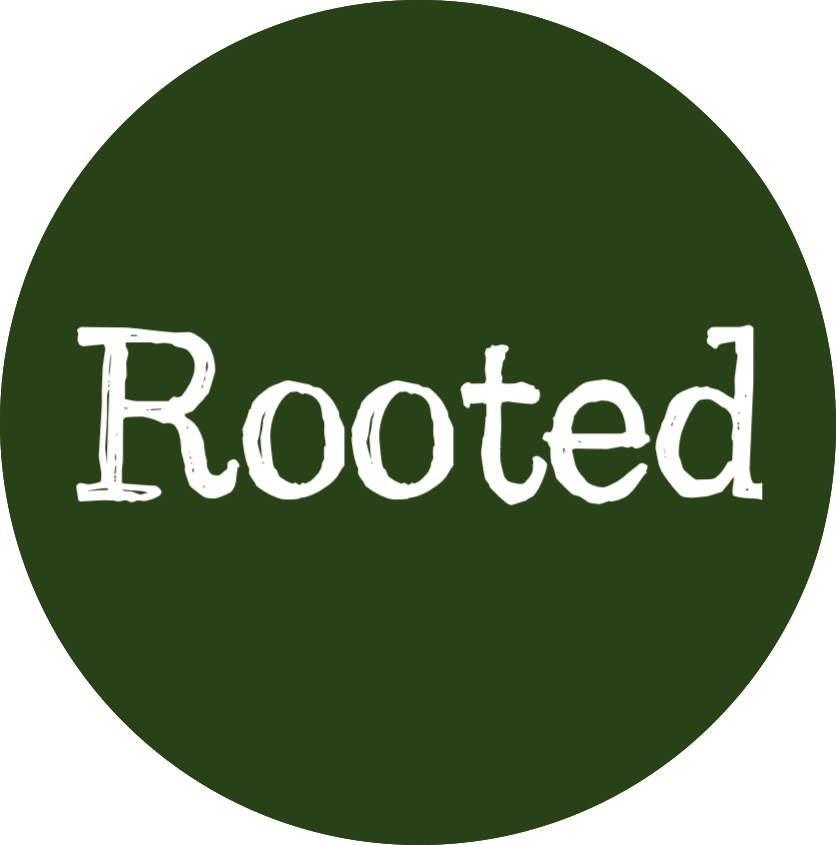Catherine
Sleep improvement strategies; Using the powerful effects of light and dark
Whilst we have developed many ‘advanced’ technologies and medicines, we find the best answers from nature. You could argue, many of the problems we face with our own health and wellbeing are due to us becoming more distant from the natural ‘habitat’ for which we were designed to thrive.
Why such poor sleep?
Many people struggle with poor sleep. If you have experienced this long-term, you’ll no doubt be aware of the wider impacts on many aspects of life; Energy levels and mood can be poor, so we may not to be motivated to exercise, socialise, spend time cooking and it can find it difficult to focus and be productive, so spend longer at work.
Physiologically, because hormonal resets and brain ‘cleansing’ which should be happening in deep sleep can mean you might notice after a poor nights’ sleep, the next day our appetite is increased and our blood sugar regulation is poorer (some research has seen this dysregulation to be equivalent to the extent of a diabetic). These effects especially make us want a quick energy boost – so we want sugar, refined carbohydrates, caffeine.
Our brain function; concentration, problem solving, thinking capabilities are reduced. We are also less resilient to stressors, so we might find ourselves reacting more readily, even at small annoyances. There are many health implications too, which can be frustrating to hear about when you desperately want to be sleeping well (so apologies)!
Long term, dementia risk, heart disease risk, diabetes risk and some cancer risk are shown to increase. The good news with the aforementioned is that our body’s resilience is incredible and we should experience improvements in all these areas once we get some consistent better sleep. As with many things, the longer we have experienced any problems, the longer it may take us to improve sleep and the longer it may take some of these benefits to be experienced.
Physiologically, because hormonal resets and brain ‘cleansing’ which should be happening in deep sleep can mean you might notice after a poor nights’ sleep, the next day our appetite is increased and our blood sugar regulation is poorer (some research has seen this dysregulation to be equivalent to the extent of a diabetic). These effects especially make us want a quick energy boost – so we want sugar, refined carbohydrates, caffeine.
Our brain function; concentration, problem solving, thinking capabilities are reduced. We are also less resilient to stressors, so we might find ourselves reacting more readily, even at small annoyances. There are many health implications too, which can be frustrating to hear about when you desperately want to be sleeping well (so apologies)!
Long term, dementia risk, heart disease risk, diabetes risk and some cancer risk are shown to increase. The good news with the aforementioned is that our body’s resilience is incredible and we should experience improvements in all these areas once we get some consistent better sleep. As with many things, the longer we have experienced any problems, the longer it may take us to improve sleep and the longer it may take some of these benefits to be experienced.
How do I know if my sleep is poor?
For some, you might not overtly be aware of poor-quality sleep, because many things in our modern world help to stimulate us into wakefulness; caffeine, artificial light, high intensity exercise so we can become reliant on these to keep us being able to do the things we want to do. You may have noticed previously that if you have an evening of drinking alcohol, you may fall asleep and stay asleep for 8 hours but you are likely to feel unrefreshed the next day. This is because alcohol prevents us reaching the deeper levels of sleep, in which the important physical restoration processes take place. Therefore, some of these can be used as indicators your sleep may not be as good as it could be:
- Easily stressed
- Crave sugary foods through the day
- Experience difficulty focusing, concentrating, performing cognitive tasks, feel ‘foggy’ in the brain.
- Rely on caffeine or other stimulants (this can be tea, coffee, energy drinks, chocolate, cigarettes)
- Feel unrefreshed upon waking (within 15-30 mins – you don’t necessarily need to be springing out of bed straightaway)
NOTE – these indicators aren’t specific, so there can be other reasons for these too and so ensure you seek professional support with these if you are already confident your sleep and sleep hygiene practices are good.
For whatever reason you may not sleep well, or feel restored upon waking, it can be fairly overwhelming to see a list of 15 things to try to improve sleep. Therefore, let’s zoom in on what seems to be an extremely potent factor in sleep quality, with some take home action points, which are hopefully doable without adding too much.
Our circadian clock
Our body has its own, very sophisticated internal (primary) clock. The clock has ‘sensors’ to recognize what time of day it is and as such, what the body should be expecting to do/put its resources into. Our main clock is the suprachiasmatic nucleus (SCN) in the brain; which is primarily governed by light/dark. This probably does it an injustice, as it is not just binary; At every point in the day, the sun emits different spectrums of light and so the SCN knows what is morning, noon, evening. The SCN is regarded as the master clock, as it then dictates the timing of the other cells in the body; For example, the cells involved in digestive processed are primed first thing, as the body expects we will eat in the daylight.
Prior to the invention of electricity, the morning light would trigger the increase in our cortisol level; our energizing and wakefulness hormone. This cortisol surge gets us out of bed in the morning. These cortisol levels generally should then wain through the day and as the evening light comes in/ it becomes darker, the body then increases melatonin levels; Melatonin is our sleep hormone. Cortisol opposes melatonin, so if the body perceives the need for wakefulness; ie. It sees blue light and therefore thinks it is morning, it will divert energy into cortisol production which suppresses melatonin. We should be producing melatonin at the latter part of the day, so we build up sufficient levels for a full night of deep, restorative sleep.
Since the SCN relies on the light coming in through the eyes, we need to get our eyes out in daylight as much as possible – key points in the day are; first thing to set the rhythm for the day and avoid artificial light later in the day to allow melatonin levels to build!
Calm the cortisol
As mentioned, cortisol opposes melatonin, so we want to avoid cortisol promoting activities later in the day (intense exercise, long sessions of moderate to high intensity cardio, stress(!), caffeine, artificial bright lights (especially blue light from screens), which is associated with daylight and wakefulness.
So, a few points we can learn from this information is outlined below.
What to do?
1. Get lots of daylight during the day!
- The morning time is most important.
- Open the curtains fully first thing when you wake.
- Get outside in daylight first thing in the morning; ideally for 15 mins but anything will do! The sun provides 10,000 to 100,000 lux (a measure of light) vs lights at home which might be 80 lux, so the sun is our true morning espresso!
- Sunglasses obviously block some of this light entering the eyes and some argue through glass you don’t get the full spectrum of light from the sun and so is not as beneficial (and possibly more problematic – you might remember than glass can change light and cause fire from school days of using magnifying glasses!) Some people use sunglasses for medical conditions or because their job involves ‘excessive light exposure' – ie. Window cleaning, fishing skiing, where the sunlight is intensified by the glass/water/snow. Obviously don’t look straight at the sun, but in winter/overcast days, looking up to the sky can be helpful to maximise getting those light rays in through the eyes.
- Get outside as much as you can periodically through the day – (the skin is also a receptor for light so expose the skin, as much as is safe). A recommendation is half the time it would take you to turn pink; so limitless in the northern hemisphere winters, but it may reduce to 5 or so minutes at peak sun time in the summer, before you need to opt for shade/cover up.
- There are many other benefits to being outside and having exposure to full spectrum sunlight, so you will be ticking many health promoting boxes at the same time!
2. Limit exposure to blue lights and other artificial lights during the evening time.
- Switch to low level lamps in the evenings, switching off the main light/dim it and turn of the bright spotlights especially.
- Try blue blocking glasses; I personally have experienced a difference from putting these on at 7/8pm – it allows your body to recognize natural sleep need, so I often want to go to bed at 9pm in winter!
- These are some glasses I’ve used from Dougos.co.uk which are amazing quality but also important look cool (rather than old 3D cinema glasses!). Use discount code JACKO15 for 15% off.
- Look at your device settings; my HP laptop has a night light that you can set to come on at any time -I have it set to come on at 5pm. There are apps for phones; Apple has the F.Lux app, Android has a few; The screen just appears red/darker – definitely kinder on the eyes as you don’t get the same screen glare.
3. Make sleep time as dark as possible
- Have your room as dark as possible for bed – try to switch off anything like plugs and devices which give off small amounts of light – a study showed that even a small light shone on the back of the leg was enough to reduce sleep quality.
- Try using sleep masks. We love the breathable natural material from Zlab use code ‘JACKO’ for 10% off https://www.zlabsleep.com
- Use a red light in your bedroom as you’re getting ready/reading. We use the top rated industry leading quality https://redlightrising.co.uk
And a shout out for camping because we love it! Camping – (limiting device use etc) is shown to be an excellent way to reset the circadian rhythm to align with the natural light/dark cycles. Even a weekend of camping has shown to do this!

Click here to download our free sleep ebook

